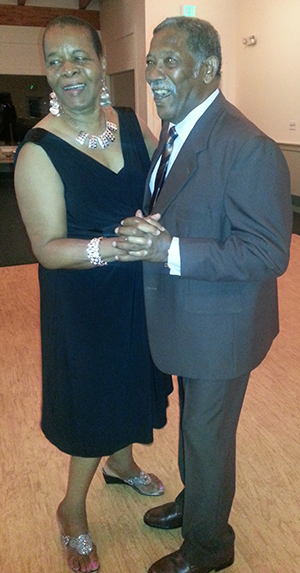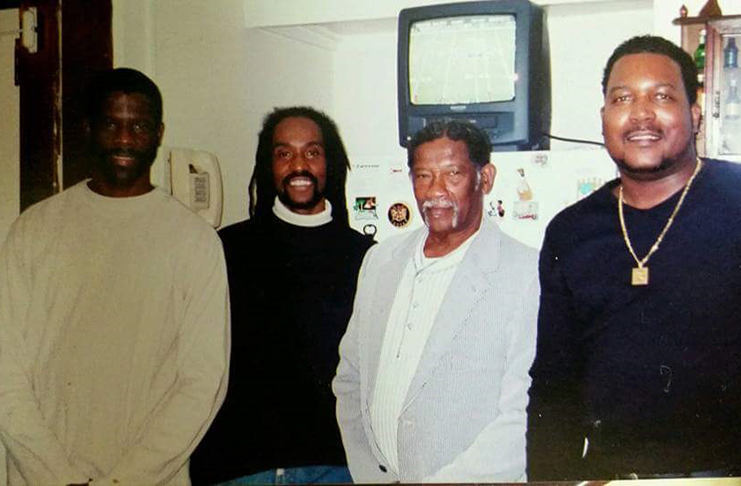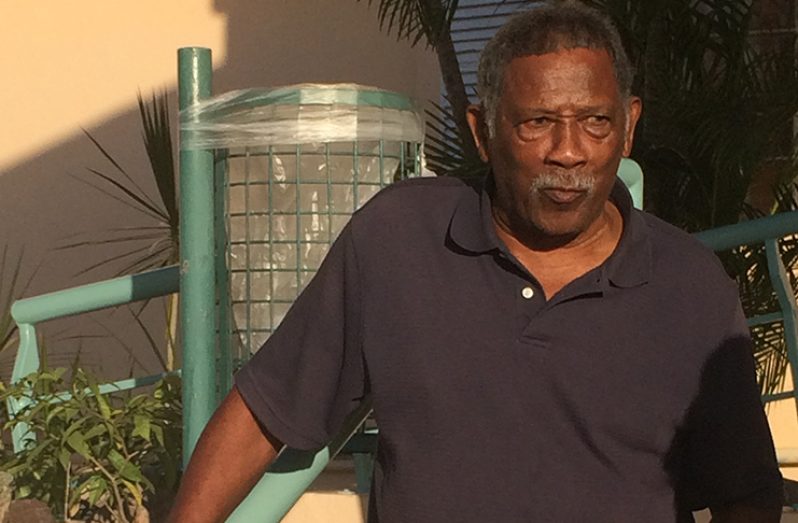WITH the passing of time, Basil Butcher’s interest in the Mashramani celebrations has waned to a large extent, the same as has been done with cricket – another activity with which his name has been associated for many years. However, he remains a pleasant man, still with a lot of life within him, especially as he is being cared for by his lovely wife of 56 years and also his adult children.

He is very proud to have been able to contribute to this country of his birth in varying ways and has no grouse about doing so. What he hopes for nonetheless, is that persons visit, sit and chat with him, for while he is not capable of speaking as much as before, he still feels that he has a whole lot to say and contributions he could make to his country.
Basil Fitzherbert Butcher was a strong West Indian middle-order and the first Aboriginal to play professional cricket, rubbing shoulders with the likes of Clive Lloyd, Garry Sobers, Seymour Nurse and others, where he played an average of 44 Tests. In 2008, Butcher was inducted into the Berbice Hall of Fame, joining men such as Rohan Kanhai, Roy Fredericks, Alvin Kallicharran, John Trim and others.
Born on September 3, 1933, at Port Mourant, Berbice, from a Barbadian father and a Berbician mother, Butcher told the Pepperpot Magazine that he felt as though he was born a cricketer; “From the time I was ‘hatched’ I was a cricketer,” he said with a chuckle.
CAREER
Butcher taught for a number of years before going on to become a clerk in the Public Works Department; he then gave his service as a Welfare Officer at the sugar company in Berbice. He also did some work as an insurance salesperson, especially up the Berbice River, since there was no other person in that area doing the same. He said that this was done when he was not playing cricket.

After moving to Mackenzie in the early ’60s he got involved in coaching cricket at the Mackenzie Sports Club, something he said he really enjoyed doing. Eventually, Butcher started working with the Demerara Bauxite Company (DEMBA) in the field of Public Relations.
Butcher said that while he was always gainfully engaged in a number of activities within his communities – Berbice and McKenzie, he still found time to have good pleasure in life. Added to his activities he joined the Jaycees of Linden, where he once more showed his commitment to the development of the community in which he lived.
INDEPENDENCE AND MASHRAMANI
The Jaycees in Linden were involved in a number of activities, but one of them was the Independence ‘Carnival’ in which Butcher played a key role; this they started just after Guyana gained Independence in 1966.

Guyana then began to put thought into action for its Republican status, which the country gained in 1970. Butcher again became an active player in the planning committee for this event. It was during this time that the Amerindian name: ‘Mashramani’ – meaning “Celebration after hard work” was derived. He was the only Amerindian on the team.
FAMILY LIFE
With all of his activities and fame, Butcher took the time to meet, court and then got married on March 17, 1962, to a beautiful lady – Pamela. This marriage is now 56 years old and has produced four lovely children: three boys and one girl. His children continue to be a pillar of strength to both him and his wife. While the children are mostly overseas they remain in constant contact with their parents.
Basil Butcher feels that his life is a simple story…like many others; he has not wasted time but did what he had to do to make Guyana a better place. “I also did my little misbehaving at times; I was not always easy,” looking at his wife playfully as he said that.
Pamela Butcher, on the other hand, was obviously not indifferent toward him, but on the contrary feels very proud of herself to have been associated with him as his ‘better half’ – more than half of a century, not out. (mercilinburke2017@gmail.com)












